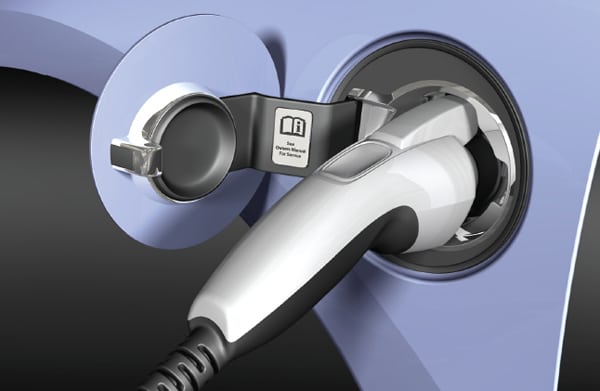White House Calls on Defense Production Act to Bolster EV Battery Supply
Credit to Author: POWER| Date: Thu, 21 Apr 2022 13:23:31 +0000

When the White House signed an executive order to get to 50% electric vehicle (EV) sales share by 2030 while relying on American manufacturing, there were some serious concerns about whether the U.S. could make that many EVs, and then create the infrastructure in time to support that many new EVs on the road.
COMMENTARY
So Congress passed the Infrastructure Investment and Jobs Act last year to provide some solution to that issue, through the authorization of $7.5 billion in programs designed to encourage the development of a national network of EV charging stations. And on Feb. 10, the U.S. Department of Transportation took the first step necessary to convert a congressional authorization into operational charging stations, by issuing detailed guidance providing clarity to all EV market sector participants in how and when funding will be made available.
With the charging network under development, the Biden-Harris administration addressed another key supply chain concern aimed at sourcing materials need for EV batteries. U.S. President Joe Biden issued a directive to the Secretary of Defense on March 31, invoking the Defense Production Act (DPA) to spur the domestic production of critical minerals needed to produce large-capacity batteries for the automotive, e-mobility, and stationary electricity storage sectors.

The president’s executive action is in direct response to the Biden-Harris administration’s longstanding concern that the existing supply chain and domestic capabilities to produce large-capacity batteries are insufficient to meet current and projected production, and consumer domestic demand, for the growing EV market.
The administration’s action also aims to relieve the U.S. reliance on foreign oil while aiding a swift transition to a clean energy future. With a U.S. ban on the import of Russian oil, liquefied natural gas, and coal—which last year consisted of nearly 700,000 barrels per day of crude oil and refined petroleum products from Russia—there will be even more pressure to implement an EV-led transportation industry. The While House said, “In the long run, the way to avoid high gas prices is to speed up—not slow down—our transition to a clean energy future.”

The DPA provides the president authority to shape national defense preparedness programs and take appropriate steps to maintain and enhance the domestic industrial base. While the DPA was originally enacted in 1950, it is now used to enhance and support domestic preparedness for response and recovery from natural hazards, terrorist attacks, and other national emergencies. Former President Trump used the DPA to fund domestic production of rare earth elements, a category of minerals used for military-grade products, as well as clean energy technologies.
Under the DPA, the president may require companies to prioritize and accept contracts for materials and services as necessary to promote the national defense, incentivize the domestic industrial base to expand production and supply of critical materials and goods, and establish voluntary agreements with private industry. The president may delegate these authorities to department and agency heads.
President Biden’s action reaffirms the administration’s commitment to the growing EV sector and may have far-reaching effects on the domestic EV space.
Currently, the U.S. depends in large part on foreign sources to supply the necessary minerals and materials to build EV batteries. These minerals generally include lithium, nickel, graphite, cobalt, and manganese. Purchasing and importing these materials is costly and presents a barrier to the growth of the EV industry in the U.S. President Biden’s use of the DPA will encourage EV sector growth through funding for feasibility studies, co-product and by-product production at current mining operations, and productivity/safety modernizations.
The administration’s commitment to domestic mining and battery production capabilities is in addition to the significant funding opportunities made available in the November 2021 enactment of the Bipartisan Infrastructure Law.
Through that law, the Department of Energy (DOE) is making nearly $2.9 billion in grant opportunities available to private sector applicants to pursue battery materials processing, manufacturing, and second-use application initiatives. Interested applicants are currently awaiting DOE’s issuance of funding opportunity announcements for those programs.
Under the Infrastructure Act, the Secretary of Transportation and the Secretary of Energy are required to develop minimum standards and requirements applicable to EV chargers within 180 days of the Infrastructure Act’s enactment. Consistent with that requirement, industry stakeholders anticipate the issuance of those standards in early to mid-May.
Those standards will be of particular interest to entities interested in pursuing funding opportunities available under this guidance and the Infrastructure Act, because those standards will be applicable to projects that are eligible for cost funding.
Given the growth in EV deployment in recent years, the signing of the DPA, the enactment of the Infrastructure Act, the issuance of DOT guidance and the anticipated issuance of standards in May 2022, the White House is making good on its campaign promises to work toward electrification in the automotive sector.
—Morgan, Lewis & Bockius LLP partner Levi McAllister, head of the firm’s electric vehicles and energy commodity trading and compliance working groups, helps energy companies navigate the quickly evolving regulatory and investment environment for both conventional and emerging energy technologies. He can be reached at levi.mcallister@morganlewis.com. Associate Maggie Curran focuses her practice on the energy sector, counseling clients on regulatory issues and transactional matters. She can be reached at maggie.curran@morganlewis.com.
The post White House Calls on Defense Production Act to Bolster EV Battery Supply appeared first on POWER Magazine.